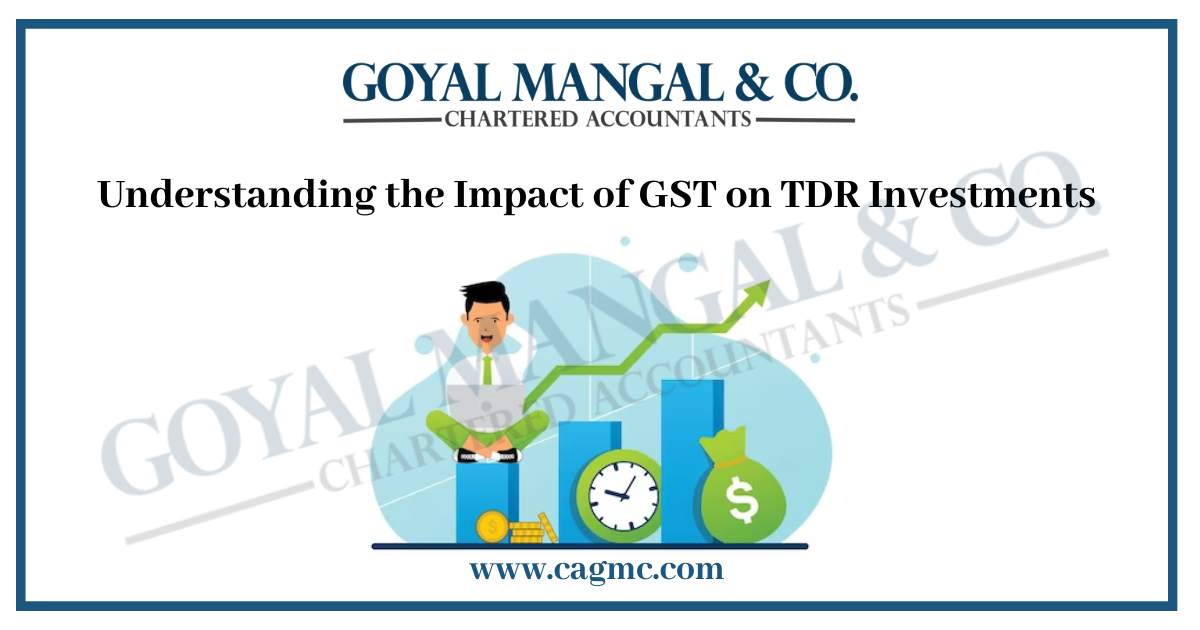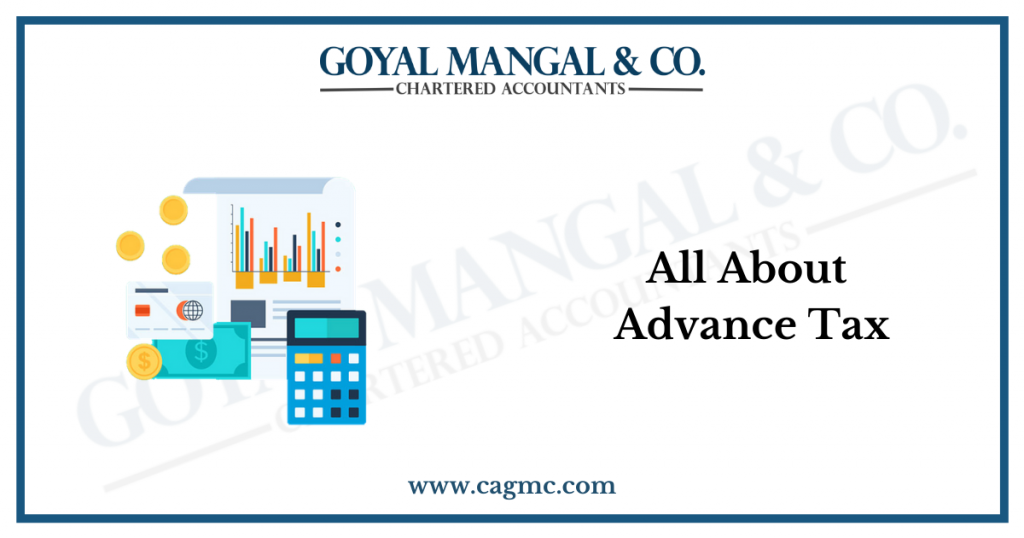
The Goods and Services Tax GST on TDR Investments is important for lots of people and companies. It’s important to understand how GST on TDRs works and what it means for our finances. This GST tax system is changing the game. When it comes to TDRs, understanding how GST applies is crucial because it can influence the overall returns on your investments. This blog aims to simplify the concept of GST on TDR Investments & Transfer of Development Rights and shed light on its implications.
Meaning of Transferable Development Rights
Transferable Development Rights (TDR) is a certificate issued by the central or state government for a land acquired for public purposes. Similarly, “TDR” is also defined in Section 6(2) of FEMA. TDR, therefore, is a right granted by an authority to construct/develop land up to a certain permissible area index (FSI) within the permissible limits of development control rules. TDR is a benefit given in the form of a Development Rights Certificate (DRC) that property owners can use themselves or transfer to others.
Meaning of Transfer of Development rights
Transfer of “development rights” means the supply of “development rights” by a property owner to a developer/developer/construction company for the construction of a complex, building or civil structure. Here, by taking over the constructed complex, building or structure from the developer/contractor, the owner may receive the “construction services” of the developer/contractor, in whole or in part against a consideration.
Difference among Transferable Development Rights & Transfer of Development Rights
TDR is different from the transfer of “development rights.” In TDR, the government (local authority) gives a property owner a deed (transfer of title) to use or sell it. Upon transfer of development rights, the property owner authorizes the promoter to develop the property on behalf of the property owner for a consideration.
TDR Taxability as per GST
TDR is taxable if it is a supply of “services” or a supply of “goods” under the GST Act, 2017. To clarify this question, we refer to the definition of goods and services provided in the Indian Constitution. Also, according to the CGST Act, 2017, Articles 366(12) and 366(26A) of the Constitution of India define “goods”. and “service.
Whether TDR is Goods or not?
According to Article 366(12) of the Constitution of India, “goods” include all materials and goods. Section 2(52) of the CGST Act, 2017 defines “goods” as movable property other than money and securities, but includes enforceable debts, cultivated crops, grass and land or any part thereof. Accompanying items are also included and shall be considered as such items. This will be agreed prior to delivery or as part of the delivery contract. Understand the definitions of related terms below.
- Movable Property: The General Clauses Act provides that movable property is any type of property except immovable property.
- Immovable property”: The term “immovable property” is not defined in the GST Act. The General Provisions Act 1987 defines “immovable property” as land, property arising from land, anything appurtenant to the surface of the earth, or anything permanently attached to the surface of the earth. Section 2(6) of the Registration Act 1908 defines “immovable property” from land, buildings, rights of inheritance, rights of way, lights, ferries, fisheries, or anything attached or permanently attached to land or ground. It is defined as other benefits that arise. It applies to anything attached to the ground, but not to standing trees, growing crops, or grass.
- Land: Section 3(4) of the Bombay Land Revenue Act, 1879 defines “land” as follows: Land” includes land and benefits arising from anything attached to the ground or permanently attached to anything on the land. It also distributes the income and rents of the village and other defined parts of the territory, or fees thereon.
- Interests arising from land: The Supreme Court also held that “land” includes rights in or on land and interests arising from land.

TDR is real estate and does not fall under “goods.”
Since TDRs are real estate, they are not “commodities.” From the above definition and the law as articulated by various courts, TDR is profit derived from immovable property and therefore is immovable property. This view is further strengthened by the fact that the TDR purchase is registered with the Assistant Registrar as applying to real estate. Therefore, TDR as real estate does not fall under the category of goods.
Whether TDR comes under Goods & Services under GST Regime?
TDR may fall under ‘Sale of Land’ under Entry No. 5 of Schedule III of the CGST Act. Therefore, TDR is neither a “supply of goods” nor a “supply of services.”
Schedule III of the CGST Act, 2017 contains a negative list listing activities that cannot be treated as supply of goods or services. Paragraph 5 of Schedule III covers “the sale of land and the sale of buildings pursuant to clause (b) of paragraph 5 of Schedule II”.
In this connection, it may be noted that the Supreme Court has held that the right to develop land is the right to develop land and/or buildings In another case too, the Supreme Court held that the right to develop land is therefore an interest in land included in the word ‘land’ From the foregoing, it is clear that a TDR is a benefit arising from land and that the transfer of a TDR gives the recipient irrevocable and permanent development rights over the land. So, it’s neither a supply of goods nor supply of services.
Transfer of Development Rights Taxability
As mentioned earlier, the landowner obtains the ‘Construction Service’ from a Developer/Builder by giving them the ‘Development Rights’. This is done in exchange for payment, which could be in the form of a constructed complex, building, or civil structure. In return, the landowner gains possession of the property from the Developer/Builder.
The transfer of Development Rights (DR) is a service that falls under taxable of service. The GST Act states that services related to real estate, excluding certain specified services, will be subject to a Goods and Services Tax (GST) rate of 18%, comprised of 9% Central GST (CGST) and 9% State GST (SGST). On 28.06.2017, So the transfer of development rights or Additional FSI by any individual to the promoter became subject to tax under reverse charge mechanism. So, GST on Transfer of Development Rights for Commercial Building and GST on Transfer of Development Rights for Residential property is 18%
Takeaway
In conclusion, the application of GST on TDR Investments is a significant consideration for anyone looking to invest in fixed-term deposits. It’s important to grasp the GST rates applicable to Transfer of Development Rights interest and the relevant exemptions. By doing so, investors can make informed financial decisions and ensure they comply with tax regulations. Knowledge about GST on TDR Investments is a valuable tool for optimizing your investments and managing your finances efficiently.


